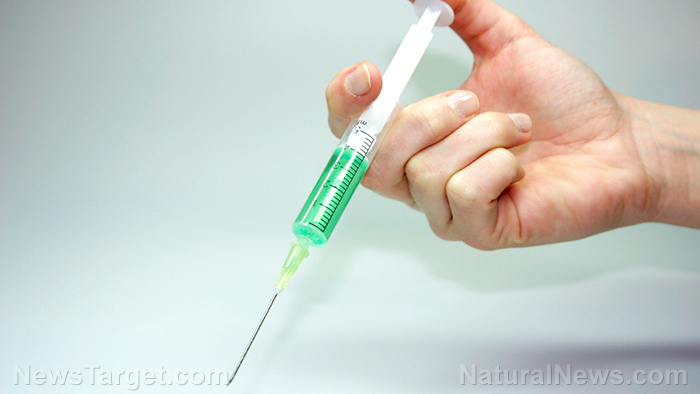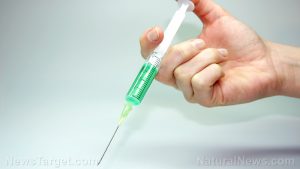
HPV – causes, side effects and treatments at NaturalPedia.com
Monday, May 07, 2018 by Janine Acero
http://www.naturalpedia.com/hpv-causes-side-effects-and-treatments-at-naturalpedia-com.html

HPV is short for human papillomavirus, consisting of more than 150 related viruses. HPV is named for the papillomas (warts) some types of HPV can cause.
Some types of HPV can lead to cancer, with some affecting the genital area. Genital HPV infections are common and highly contagious. They are transmitted through sexual intercourse and skin-to-skin contact of the genital areas.
HPV infections are the most common sexually transmitted infections in the U.S. A person is highly susceptible to it if they have had many sex partners or have had sex with someone who have had many partners.

Known symptoms and risk factors for HPV
In some instances, the warts that appear due to HPV infections go away on their own without any symptoms. However, the virus is still in the infected person’s body, which could still be passed on to sexual partners.
Common symptoms of some types of HPV are warts in the genital areas and in the throat (called a recurrent respiratory papillomatosis). They may appear large, small, flat, or cauliflower-shaped, and may be white- or flesh-colored.
Other warts associated with HPV are:
- Common warts — Rough, raised bumps mainly found on the hands, fingers, and elbows.
- Flat warts — Generally affect children, adolescents, and young adults. They are flat-topped, slightly raised lesions that are darker than normal skin color and are commonly found on the face, neck, or areas that have been scratched.
- Plantar warts — Appear as hard, grainy growths that most commonly appear on the heels or balls of the feet.
Body systems harmed by HPV
There are two categories of sexually transmitted HPV. The first one is low-risk HPV, which can cause genital warts. Untreated genital warts can cause discomfort such as abnormal urine flow in men, bleeding from the urethra, vagina, or anus.
While most HPV infections never cause any symptoms, some can trigger changes in the cells that eventually lead to cancer, as is the case with the other sexually transmitted HPV infection, called high-risk HPV. It can cause various cancers, such as:
- Anal cancer
- Cervical cancer
- Penile cancer
- Some types of oral and throat cancer
- Vaginal cancer
- Vulvar cancer
Food items or nutrients that may prevent HPV
The most important home remedies for HPV include the use of echinacea, calendula, oregano oil, mushroom, and curcumin. Other effective home remedies include:
- Thuja oil
- Tea tree oil
- Astragalus
- Goldenseal
- Garlic
Treatments, management plans for HPV
There is no definitive cure for HPV, but there are treatments for the health problems that accompany HPV infections.
Many warts will go away on their own even without treatment, but you can have them removed by the following methods and products:
- Cyrotherapy, or freezing and removing the tissue
- Luster therapy
- Surgical removal
- Topical creams or solutions
The method for removing the warts will depend on several factors such as warts’ the size, number, and location.
If precancerous or cancerous cells are discovered in the cervix, you can have them removed with one of the following ways:
- Cyrotherapy
- Surgical conization, which involves removing a cone-shaped piece of tissue
- Loop electrosurgical excision, which involves removing the tissue with a hot wire loop
The same options for removal can be used for precancerous or cancerous cells discovered in other areas of the body such as on the penis.
Where to learn more
- Most cancer is caused by processed food and toxic ingredients, new study confirms
- Having chlamydia DOUBLES women’s risk of developing ovarian cancer, study finds
- Compound in turmeric found to suppress viruses, including hepatitis, herpes, chikungunya, influenza-A, HIV and HPV
Summary
HPV is short for human papillomavirus, a group of viruses consisting of 150 related viruses.
HPV infections are the most common sexually transmitted infections in the U.S.
Sources include:
Tagged Under: Tags: HPV





